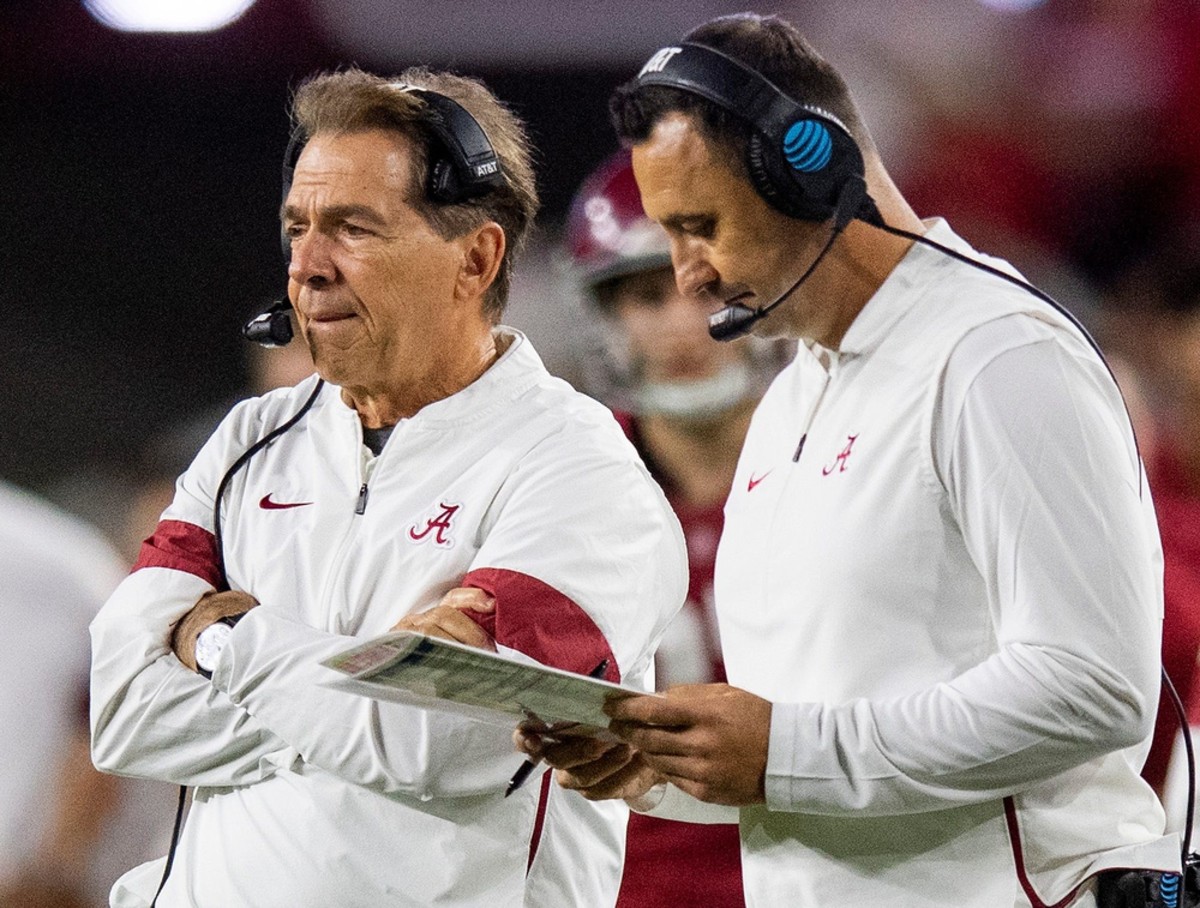
A Jersey Guy: Ohio State Dealing with Rising Tide

Maybe it will be like most of Alabama's football games this season, including the Tide's 31-17 walk over against Notre Dame in the CFP semifinals in the Cotton Bowl on January 1...
That victory, which elevated Coach Nick Saban's team's record to 12-0, felt like the Tide could name its score affair from the opening kick off.
It's not that Notre Dame was all that bad—only Clemson had beaten the Irish going into the Alabama game.
It's just that Alabama—especially offensively—was that good, with a generational array of talent that produced an AVERAGE of almost 50 points per game.
How good is Alabama on offense.
Consider this. Wide Receiver DeVonta Smith, who won the Heisman Trophy on Tuesday night, wasn't even the best receiver on the Alabama roster when the Tide began their season in late September.
That tag belonged to Jalen Waddle, who has been sidelined since late October with a broken ankle, an injury which has healed to the point where Waddle could very well play in Monday night's national championship game against Ohio State.
"Probably a game-time decision,'' said Saban in a media zoom call on Thursday.
Add Heisman finalist quarterback Mack Jones and and fifth place finisher in running back Najee Harris and you have more areas of attack than most college defenses can handle.
Alabama is figuratively and almost literally the elephant in the room when the topic of the college football playoffs are being discussed.
Saban has won six national championships, which puts him on a pedestal far above any other active college coach.
Since the CFP system began in 2014, Alabama has been a Final Four semifinalist five of seven times, played in the championship game five times and won twice.
Since arriving in Tuscaloosa in 2007, Saban's record is an astonishing 164-23 and Alabama football has become a franchise that just churns out victories, Heisman Trophy winners, All American players and perpetually restocks with 5-star quality players.
As long as Saban is around—he is 69 and given no indication he is tired of his job and makes more than $9 million a year—there is no reason to believe the Tide won't continue to roll in with double digit win season and Final Four playoff appearances.
One of Saban's strengths is that he has morphed from a defensive oriented coach who has adjusted and thrived as someone who can beat you by simply outscoring you.
This season has been a prime example.
In the Tide's second game of the season, Mississippi, coached by former Tide offensive coordinator Lane Kiffin, gave Alabama all it could handle before dropping a 63-48 decision.
Two months later, Florida did almost the same thing in the SEC title game, but came up short against the Tide in losing a 52-46 offensive shootout.
Whether Ohio State is capable of doing that with a QB in Justin Fields, who may be damaged goods (ribs) is iffy, as is Ohio State's ability to shut down Alabama on any offensive series, especially if Waddle returns.
That the Tide has succeeded with new coordinators—OC Steve Sarkasian is the latest coach to move on, taking the head job at the University of Texas—and a steady influx of new talent over the past decade is an indicator of a dynastic force in college football.
"I think what separates this team really (with) all the distractions that we've had the program and we all just came together really and grind it out throughout the summer, not knowing if we'll play or not,'' said Harris, who has been a steady presence the past three years.
"So really—just really us bonding together more and more as a team and knowing that every game we're going to get the best of everybody and that we have to really play to our standard, the Alabama standard.